- Details
French Alumni SoCal pre-summer networking event took place on June 5th in Los Angeles. The event was organized by French Alumni SoCal group.
Julie Duhaut-Bedos, Consul General of France in Los Angeles welcomed guests in the Résidence de France (813 North Camden Drive Beverly Hills, CA 90210).
The event was dedicated to Innovation. Among the guests there were representatives and alumni of X, Mines, Telecom, HEC, Essec, Escp, EDHEC, EM Lyon, Sciences Po, Sorbonne.
There were also a few Arts et Metiers alumni present at the event.
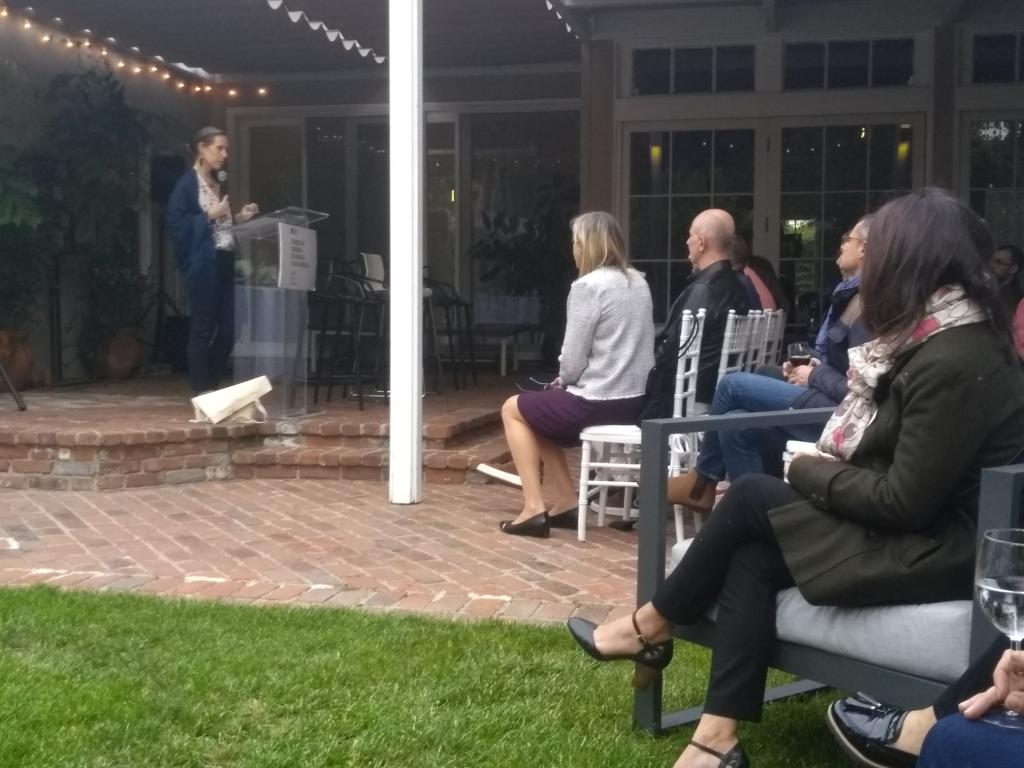
Julie Duhaut-Bedos, Consul General of France in Los Angeles
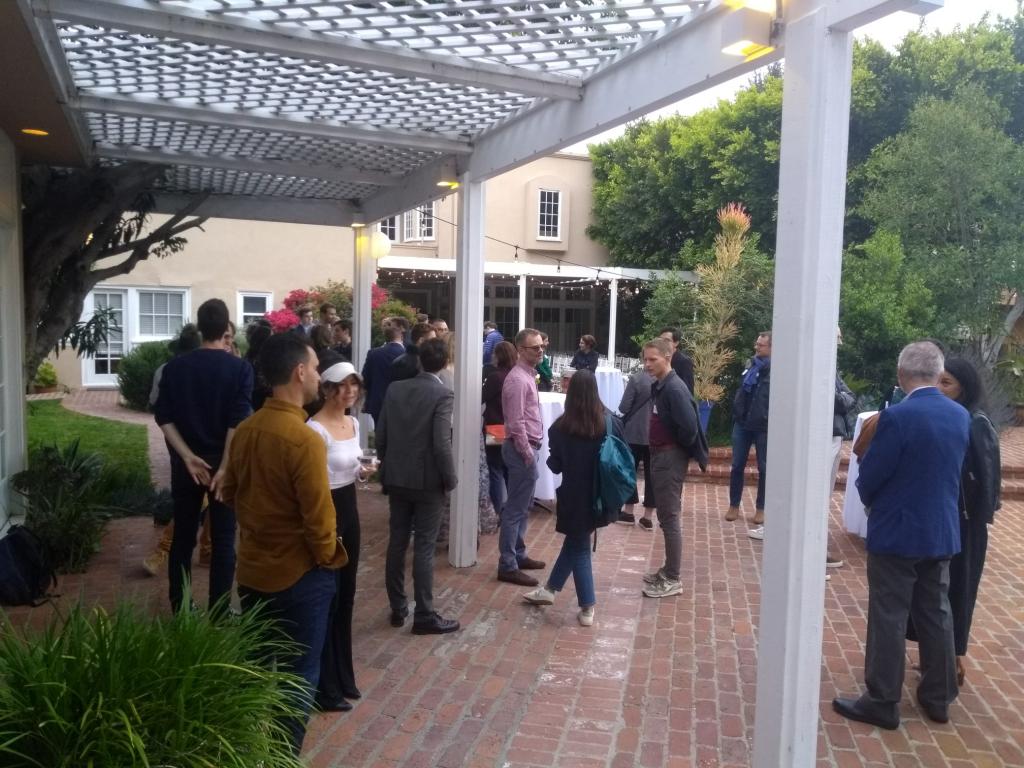
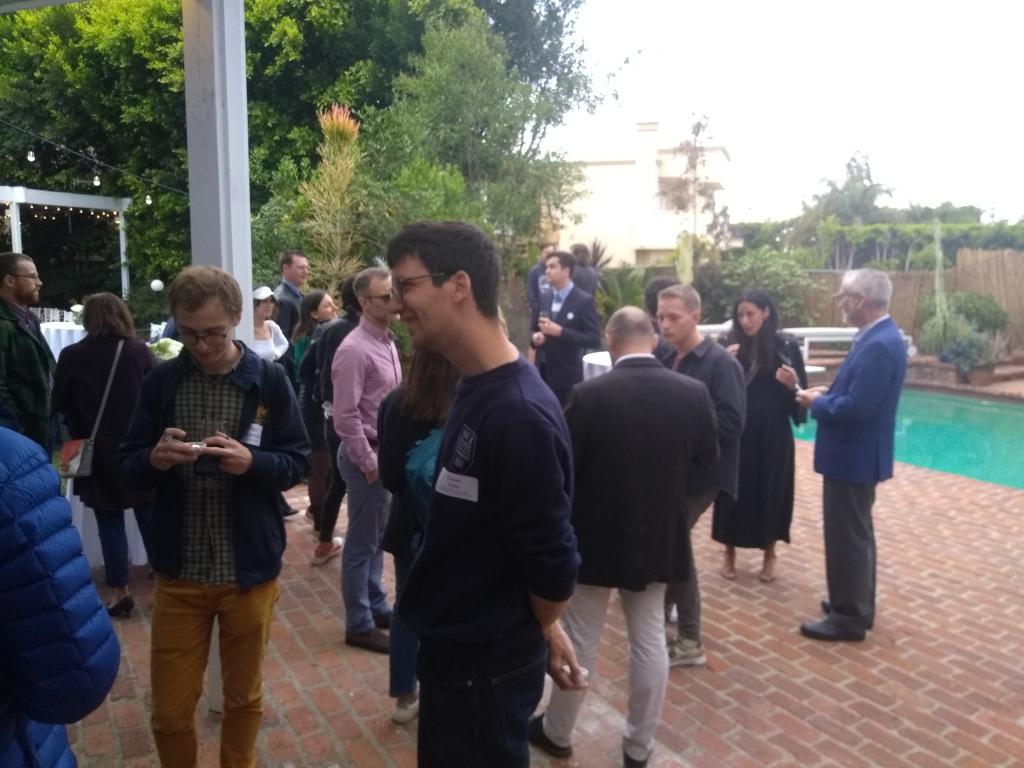
French alumni at the event
- Details
AFAM:
Hello, Louis, and thank you for agreeing to answer my questions. You graduated from both Arts et Métiers and UC Berkeley (Electrical Engineering and Computer Science). Since 2019 you have been working in the healthcare industry as Machine Learning Engineer: first at VideaHealth, an AI platform for dentists and today at Butterfly Network, an ultrasound company. Please tell us a few words about your mission with these companies and whether working in the healthcare industry was a coincidence or your choice.
Louis:
Hello! Thank you for having me. Working in the healthcare industry was definitely a deliberate choice for me. I've always been interested in the intersection of technology and healthcare, and I wanted to work at the crossroad of AI research and AI products.
During my time at VideaHealth, my mission was to develop and deploy machine learning algorithms to automate the analysis of dental X-rays and assist dentists in their diagnosis. The goal was to improve the accuracy and efficiency of dental diagnoses, ultimately leading to better patient care. The main project I worked on was developing an algorithm to detect cavities on X-rays and get that cleared by the FDA. Being able to work on solving such a problem once and then being able to deploy it to thousands of dentists to help the diagnosis of millions of patients is truly what is amazing about working in ML.
Butterfly Network has developed a handheld ultrasound device called the Butterfly iQ. My mission here is to develop algorithms to run on top of the imaging capabilities of the Butterfly iQ. For instance, displaying in real-time the quality of the ultrasound image or labeling anatomical features.
AFAM:
How do you think working in the healthcare industry is different from working in other companies?
Louis:
The main difference is that the algorithms I develop can bring a lot of benefits to patients as long as they are carefully built. That is why the FDA makes sure all of those algorithms are fair. This has direct implications on the code I write since there are important requirements in place that are meant to safeguard against mistakes.
Another key aspect is the cross-functionality of the work. As a Machine Learning Engineer, I work with people in the Software, Product, Clinical, and Regulatory teams. As such, being able to understand and work with them is key. In this regard, I believe the French Grandes Ecoles system and Arts & Métiers definitely helped in building a broad set of skills.
AFAM:
Boston in the US is considered to be one of the centers of biomedical engineering, research, and innovation. Do you take advantage of being in Boston to advance your career in the biomedical sector?
Louis:
Absolutely, a great example of that would be the MIT Healthcare hackathon that is happening every year and that I got the chance to win last year. Boston also has so many hospitals that it makes it very simple to be in touch with the latest research.
AFAM:
Any biomedical startups/companies in the US or in France you are following or/and have been impressed by recently? Why?
Louis:
There are quite a few! On top of my mind, I would mention Digital Diagnostics, a company that works in the ophthalmology space, which is one of the rare companies that got an FDA clearance for an AI algorithm that can be used completely autonomously, which allows it to diagnose patients in areas where ophthalmologists are not available.
There is also Medivis, a company working on imaging for surgeries, and we should see significant breakthroughs from them soon!
In France, Cardiologs is doing an amazing job in the ECG space and while being a French company already has an FDA clearance!
AFAM: in our Shasta program, we often help students interested in the healthcare industry and also those interested in Machine Learning. What would you advise these students who are willing to find an internship in the US?
Louis:
In terms of key skills to master in order to get hired in such positions I would mention coding and data skills. It’s necessary to be great at ML algorithms but without solid skills in Python and leveraging the pandas library it is very difficult to work efficiently.
AFAM:
Any future plans concerning your professional career you’d like to share with us?
Louis:
The coming years will definitely be quite challenging based on projects I cannot disclose yet but I am hoping I’ll deliver amazing news in a year!
AFAM:
Thank you for your time, Louis, and have a wonderful day!
Other interviews in our "Medi, Vidi, Vici" interview series:
Interview with Alexandre Becache (Bo 219)
- Details
On May 23rd a conference "How to stay in the US after your J1 visa?" took place. It was organized by French Morning.
Rodrigue Colaianni, J1 and F1 visas expert explained to students what options might be available to them to stay in the United States for 2 to 4 more years. Rodrique talked about Curricular practical training (CPT), optional practical training (OPT) and different types of visa students can apply for after their J1 internship.
Good news for French citizens about the duration of E visa is that Premium Processing will be available soon from June for change of status from J1 to F1 within only 30 days (read about it more here).
Rodrigue Colaianni also presented a new MBA program which will allow to continue studying in the US.
Studying in the United States might be an interesting and useful option for many our Arts et Metiers students and alumni. That is why AFAM is launching a new Sequoia program to help our alumni to study in the United States.
To know more about our news Sequoia program, please visit our web-site and contact AFAM community manager.
AFAM accepts applications to join our new Sequoia program before June 30.
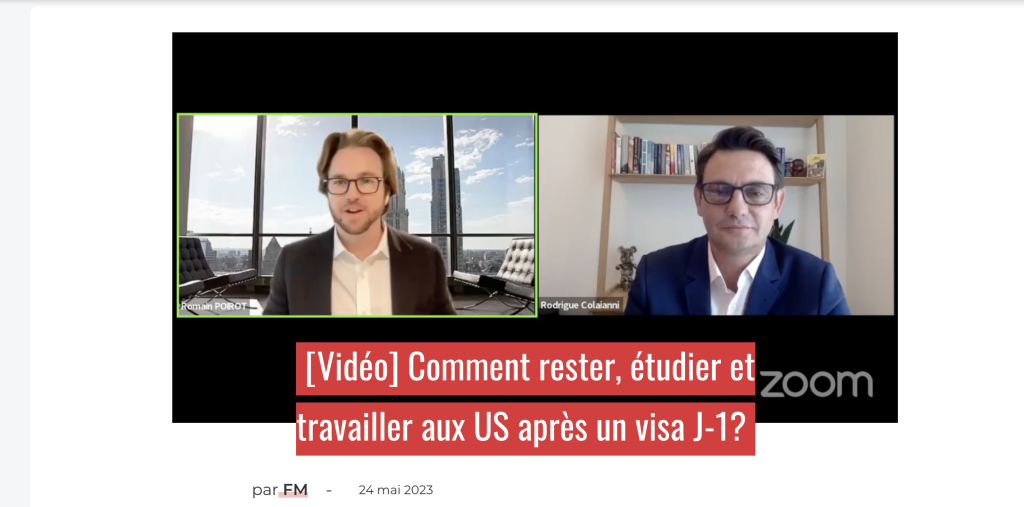
- Details
First Sequoia online conference for students willing to study in the US took place on May 9th.
Students of second and third year were invited to join the conference.
Members of Sequoia committee - Valentin Fehr (Cl 212), Nicolas Horde (Ai 214) and community manager Albina Patou-Chebykina shared with the students information about the new Sequoia program and Sequoia grants.
Arts et Metiers students and alumni willing to study in American Universities are invited to contact AFAM community manager to join the program in May!
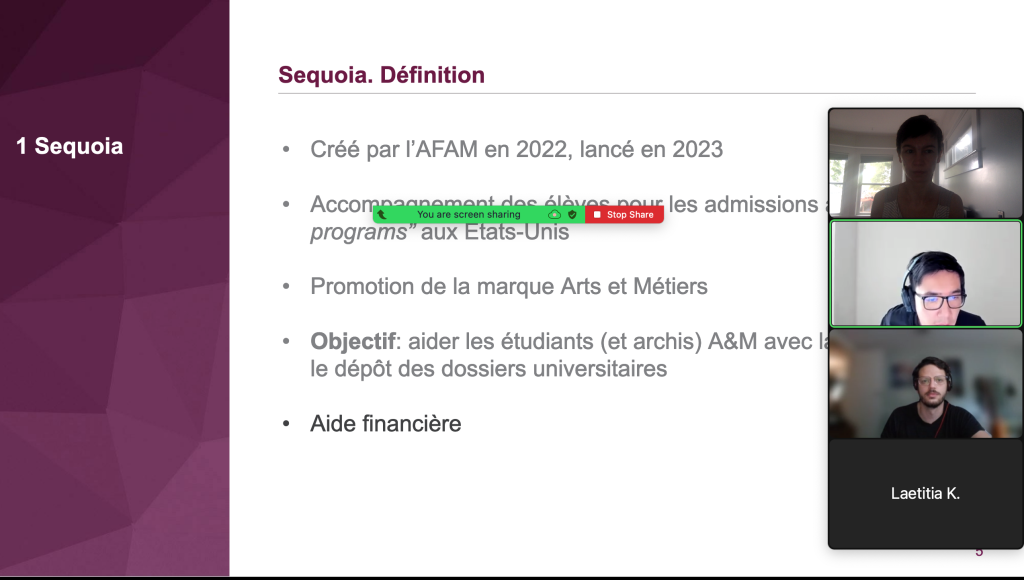
- Details
Interview with Robert Stelly (Ch 197), Shasta committee member and Shasta mentor
AFAM: Hello, Robert, and thank you for your time and for agreeing to talk to us. We invited you to participate in our “Giving back to your community” interview series to talk about your role within AFAM and the motivation that led you to this role. But first of all please tell us a few words about yourself. Where do you live and what are you doing in life?
Robert: Sure, hello Albina. I am living in Houston, TX. Before that I was living in the North of France and even before I was born and raised in the countryside of the great city of Nancy in Lorraine. In 2019, I was invited to move to the US to speed up the development of new businesses involving digital components. My company is a worldwide group manufacturing heavy mechanical components for the energy sector traditionally oil, gas, geothermal and more recently involved in CCUS and hydrogen. I have been working in this company for almost 16 years. Previously, I was working many years in the railway industry for the biggest North American train manufacturer that was recently acquired by Alstom. I am married to my awesome wife Sophie. We are having an intense life, among others we enjoy gathering with family or friends, traveling but also cooking. On my end, I am specializing myself in baking sourdough French baguettes, croissants, obviously petit pate lorrain and other puff pastries that make me famous in the neighborhood.
AFAM: today you live and work in Texas, did you meet gadz’arts community there? Could you tell us more about gadz in Texas?
Robert: Texas is a big state with scattered cities: Austin, Houston, San Antonio, Dallas, College station, Lubbock, to name a few. Rather challenging to gather people in one single spot. We gather in smaller groups usually by affinities and/or location. As far as I am concerned, I meet with the Gadzart community of Houston. Good food, good wine and good vibes are always around the corner.
AFAM: Currently, you are one of the Shasta mentors and one of the members of the Shasta committee at American Friends of Arts et Metiers. Please tell us about it. How did you join the committee? What was your motivation? How do you see your role as a Shasta mentor and a committee member today?
Robert: Good questions, thank you for asking. Actually, before I moved to the USA I was used to traveling a lot and working around the globe with limited time to do something else for my community. And Covid happened, it gave me the opportunity to think about the direction my world… our world is going to. Among others, I realized the drop of industrial jobs in France since the 2000’s: from 25 to 10%, a very limited number of French university in the Shanghai ranking, the national ranking of the Arts et Métiers is better than it used to be, still lagging behind the top 10, no champion in “the tech” really competing at the same level as GAFA. Putting these facts in perspective, I was wondering what I could be doing at my level. Not much maybe, however, thanks to my various experiences in working in many countries like Japan, Germany, China, the Emirates, Mexico, Scotland, England… and now based in the USA, why not giving few hours of my time in helping students at developing their hidden desires, giving them few tips on their resume and obviously to look outside of the French territories. Digging down with the gadz’art community in Houston, I came across the Shasta program from AFAM, a great tool in connecting students and their elders located in the USA. I am honored to be seated at the AFAM committee and do our best to address the mentees' needs.
AFAM: Do you have any previous experience helping non-profit organizations? Any non-profit you knew of and helped when you were a student at Arts et Metiers?
Robert: Back in the day, I was leading a small group of the Union des Élèves, called Cvis . The goal was to provide a wide range of services to the 1,000 students. At this time, the vast majority of students were based in Paris for the 3rd year. I also remember my contribution to the Shell Eco marathon. Under a non-profit, I was also giving some training courses to prisoners for a couple of years.
AFAM: Anything you’d like to wish to AFAM?
Robert: From Boston to LA, from Miami to Seattle, there are some gadzarts, living and working. They are involved in many fields and activities that it is simply not possible to summarize. I am in touch with some of them, many of them if not all are eager either to support the Shasta program or want to welcome students as interns/trainees in their company. Of course, I wish the best for American Friends of Arts et Métiers and the different initiatives that are embedded to leverage this amazing footprint. I wish these programs will be massively communicated to the students at the earliest stage of their scholarship in our great school Arts et Métiers. I know everything is done in this direction and that you, Albina, are instrumental in that respect.
AFAM: Thank you, Robert!
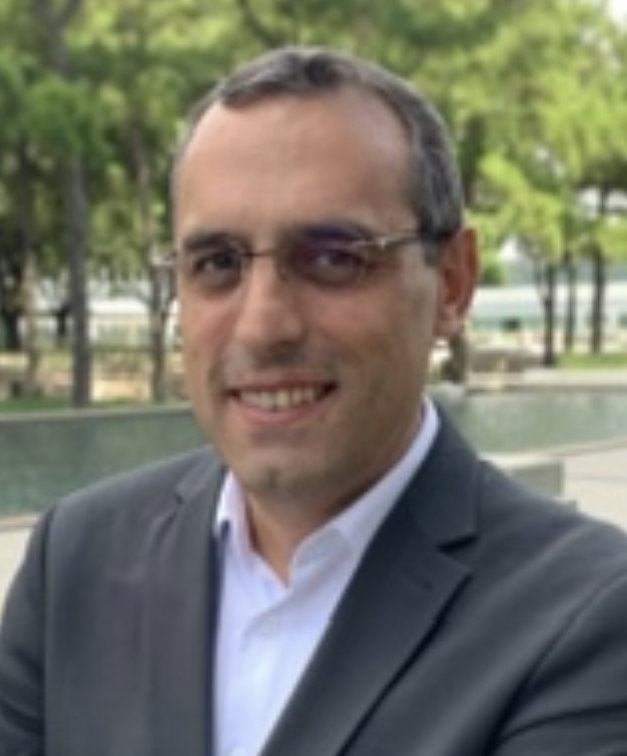
Picture: courtesy of Robert

 BLOG /
BLOG /  CALENDAR /
CALENDAR /  DONATIONS /
DONATIONS /  MENTORS /
MENTORS /